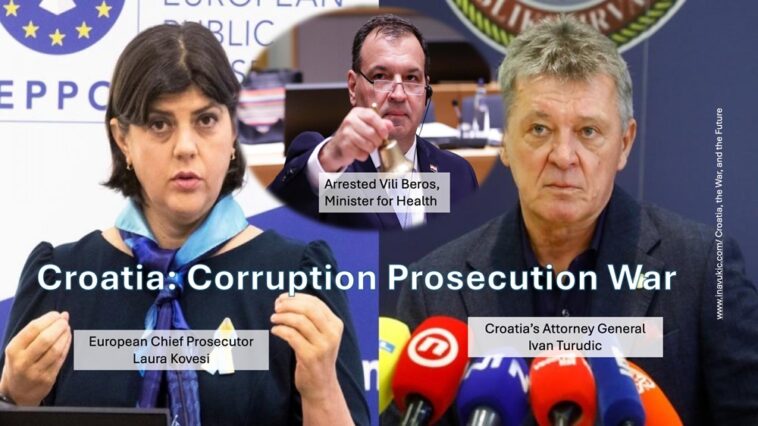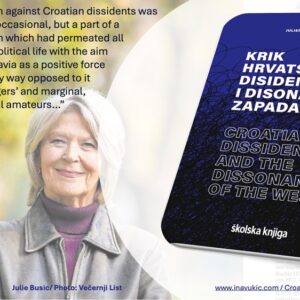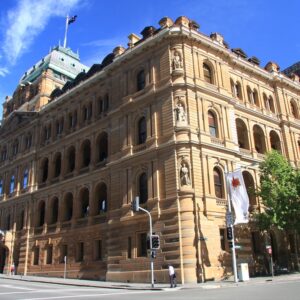Corruption scandals that have been erupting in a clockwork fashion every few months or so within the HDZ/ Croatian Democratic Union government of Croatia, led by Prime Minister Andrej Plenkovic, since 2016 is beginning to remind one of some nasty rare skin disease humans can contract, such as Pyoderma gangrenosum. Only, there is no pustules, nodules or ulcers erupting to the surface every so and so – just nasty thieves of public money and resources. While most people have lost count of the number of government ministers that were thrown out of their jobs due to their association with corruption or alleged corruption or involved in major corruption scandals since 2016 it exceeds the figure of thirty! But the latest corruption scandal that erupted during the past week when Vili Beros, Minister for Health, among several colleagues of his involved in medical equipment acquisition, ended up behind prison bars an entirely new landscape of fighting corruption broke out that is not only shaking the foundations of jurisprudence in Croatia but also in the European Union framework. There is an insidious war with regards to jurisdiction for the prosecuting of this case going on between the Croatian Attorney General’s Office/DORH/USKOK and the Office of the European Public Prosecutor/EPPO present in Croatia.
Minister Vili Beroš, the directors of two hospitals in the capital Zagreb, and two companies are suspected of “accepting and giving bribes, abuse of position and authority and money laundering,” the European Public Prosecutor’s Office, or EPPO, in Zagreb said in a statement. The EPPO statement said that five of the suspects between June 2022 and Nov. 2024 “teamed up” to secure undue financial gains for two companies by promising and giving monetary rewards to relevant stakeholders.
Anyone with their head screwed on correctly can read between the lines and conclude that the key issue in this unfriendly determination of jurisdiction between the DORH and the EPPO is not only to determine who will be responsible to prosecute this case, but perhaps even more so to protect any possible involvement of Prime Minister Andrej Plenkovic in corruption. Perhaps this case, as opposed to all the previous ones, has brought the matter of corruption too close to Plenkovic’s “home”?!
The EPPO is the independent public prosecutors’ office of the European Union. It is responsible for investigating, prosecuting and bringing to judgment crimes against the financial interests of the EU. For instance, where misappropriation of EU funds is concerned.
Croatia’s Attorney General Ivan Turudic criticised the EU prosecutors for allegedly not informing Croatia’s anti-graft authorities (USKOK which is part of DORH) that they are also investigating Beros and the others. He said that he will decide who is responsible for the entire case. He made his decision: it will be the Croatian anti-graft authorities, not EPPO. The EPPO stated that they suspected Beros of receiving bribes, while Turudic said Croatian investigators are accusing him of the lesser crime of “influence peddling.”
With the Croatian State Attorney Turudic taking the case out of EPPO hands, EPPO did not sit quietly. They reacted swiftly to Turudic’s decision and reported Croatia to the European Commission on 21 November 2024! In a letter to the European Commission, prosecutor Laura Kovesi stated, among other things, that Croatian Chief State Attorney Ivan Turudic, who had previously decided that the investigation was under the jurisdiction of USKOK, not the EPPO, had “further aggravated the situation”.
Kovesi believes that Turudic based his decision solely on USKOK’s interpretation without giving the EPPO the opportunity to express its point of view, thereby undermining the impartiality of the conflict resolution. In addition, she claims that USKOK failed to report the investigation into a project financed by EU funds, thus violating its obligations under the EPPO Regulation.
She also states that designating the Attorney General as the body to resolve such conflicts is contrary to EU law.
In a statement, the EPPO recalls that it was investigating a criminal association of eight Croatian citizens and two companies involved in procurement financed by EU money (specifically the “NextGenerationEU” fund), but also from the state budget. These are acts of active and passive corruption, abuse of office and authority, and money laundering, committed as part of a criminal association, between June 2022 and November 2024.
The EPPO, they say, planned to carry out searches and arrests on 19 November 2024. However, on 15 November 2024, the EPPO learned that USKOK had obtained court orders to conduct searches against some of the suspects investigated by the EPPO, and thus the EPPO learned of the existence of an investigation conducted by national authorities into facts falling within the competence of the EPPO.
In accordance with the applicable national law on criminal procedure, the EPPO formalised its investigation on 15 November 2024. On the same day, the EPPO exercised its powers under the EPPO Regulation and requested the takeover of the case opened by USKOK, the statement said.
“Although the EPPO strongly disagrees with the decision of the Attorney General of Republic of Croatia, the EPPO acted on the decision of the DORH, in accordance with the EPPO Regulation and entrusted the investigation to USKOK,” they concluded in the statement.
Hence, on 21 November 2024, in response to these events that involve the actions of the Croatian Attorney General Turudic, the European Chief Prosecutor addressed a formal letter to the European Commission, underlining Croatia’s systemic challenges in upholding the rule of law, in line with Article 4 of Regulation (EU) 2020/2092 of 16 December 2020 on a general regime of conditionality for the protection of the budget of the European Union (Conditionality Regulation).
- The designation of the State Attorney General as the authority to resolve such conflicts is in contravention of EU law.
- The State Attorney General, tasked with resolving conflicts of competence, further aggravated these circumstances by basing his decision solely on USKOK’s interpretation, without giving the EPPO the chance to express its position, and thus undermining the impartiality of the conflict resolution.
- USKOK did not report its investigation into an EU-funded project, violating its obligations under the EPPO Regulation.
EPPO’s frustration is understandable if not justified. However, whether the reporting of Croatia to the European Commission will have the outcome that EPPO perhaps desires is another matter. That is, most European Union member countries have retained within their jurisprudence the right to decide on the issue of jurisdiction by the Attorney General. By the same token, though, the European Commission may also be justified in deliberating in favour of EPPO given that the current system of jurisdiction allocation in member countries has not reduced corruption and EPPO’s initiative could well be the opening of the gate to real reduction in corruption which is achieved when one does not prosecute one’s own. It is indeed worrying that two prosecutors’ offices operate on the territory of the Republic of Croatia and have authority. They take witnesses, they hijack cases… One European prosecutor said that it was not in their interest to inform the Croatian Attorney General, which is why it follows that EPPO may have known that informing the Attorney General would harm the investigation. This, of course, may also be the nest where corruption thrives in Croatia just as it did in communist Yugoslavia and an independent body such as EPPO is an absolute requirement if prosecution is to yield justice, both real and perceived. Ina Vukic




